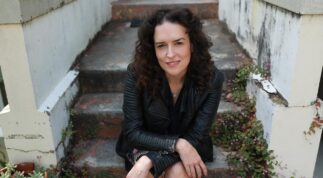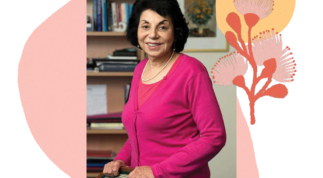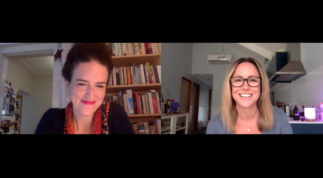On the 11th and 18th of February, the Victorian Women’s Trust screened Love, Power and Control, a two-part webinar series on the potential of coercive control law reform in Australia. The series was moderated by Jess Hill, journalist and author of Stella Prize winning book, See What You Made Me Do: Power, Control and Domestic Abuse.
Over the two webinars, Jess was joined by a number of experts from the UK and Australia who work on the frontlines of the domestic violence and law reform sectors. Part One of the series focused on viewpoints from the UK, where coercive control has been criminalised for several years. Part Two switched perspectives and considered what criminalising coercive control might look like in an Australian context.
What is Coercive Control?
Coercive control is a pattern of dominating behaviour within a relationship that intends to undermine someone’s sense of autonomy and independence by isolating them from support networks, exploiting them, and regulating their everyday behaviour. It can include emotional abuse, threats, intimidation, sexual coercion, financial abuse and cyberstalking.
Unlike current conceptualisations of domestic violence in Australian law, coercive control is not characterised as individualised incidents of physical violence, but rather recognises a broader range of behaviours that operate pervasively within a relationship. As described by webinar panellist Pragna Patel, coercive control is “a continuum” of “multiple and overlapping forms of abuse”.
The UK Perspective: How has Law Reform impacted the Lives of Victim-Survivors?
Coercive control in an intimate or family relationship was criminalised in England and Wales in 2015, and Scotland introduced a similar offence in 2019.
Members of the webinar panel suggested that it is still too early to know the total impact that these laws have had on victim-survivors, although there was resounding agreement that the laws had led to a greater awareness of coercive control within the community.
“I think what it has done is created a wider cultural awareness. There is a perceptible cultural shift in a way in which domestic abuse is understood, and that has to be a good thing… I’m hoping that it isn’t just limited to the criminal justice system, but that it actually percolates into the family justice system, where it’s urgently needed, and within other state institutions, where they interface with women who face violence and abuse or other vulnerable adults who face violence and abuse.” – Pragna Patel
This was particularly true for Scotland, according to Melani Morgan OBE, where the new framework prompted the allocation of resources for both educating the community on coercive control. It also led to the revision of in-depth domestic abuse training for frontline law enforcement.
Melani herself played a key role, by developing a cultural, attitudinal and practical change program ‘Domestic Abuse Matters’ to train frontline police on how to identify coercive control and implement the legislation. Drawing from her own experiences, both as a police officer and a victim-survivor of domestic abuse, she trained officers to recognise coercive control behaviours that may be overlooked in traditional domestic violence investigations.
“Let’s ask those questions that are going to help someone to say, ‘Well actually, I have to do 10 hours of housework every day. And if I don’t, I’m terrified he’ll harm my children.’ So we train them to do that. We train them to ask completely different questions about it.” – Melani Morgan
The effectiveness of this training should not be understated. In the first year after coercive control legislation came into effect in Scotland, 1,700 offences were recorded, and 96 per cent of these incidents led to prosecutions. It is because of the effectiveness of this training that Scotland is often seen as “gold standard” for coercive control reform.
What would Coercive Control Legislation Look Like in Australia?
No Australian State or Territory has comprehensively criminalised coercive control.
Following the killings of Queensland woman Hannah Clarke and her three children in 2020, and NSW dentist Dr Preethi Reddy in 2019, there has been a widespread public movement for the introduction of coercive control offences across Australia.
This movement has received the support of ARE Media (the parent company of Marie Claire, The Australian Women’s Weekly and Better Homes & Gardens), which launched the Criminalise Coercive Control Campaign alongside a number of community organisations, calling for coercive control to be criminalised by July 2021.
Governments have also been quick to respond. The Queensland Government established a consultation taskforce, aiming to have a bill before the QLD Parliament by early 2022; and both the Northern Territory and New South Wales governments have announced their plans to introduce coercive control offences; the South Australian opposition has tabled a coercive control bill, and a motion calling for a coordinated national approach has recently passed both the Federal Senate and the House of Representatives.
Despite this traction in the legal reform space, some within the domestic violence sector have reservations about the ability of these proposed laws to protect victim-survivors and are concerned about their potential impact on different cultural groups.
The mistrust of the criminal justice system among Indigenous communities may present a large obstacle in combating coercive control through legislative reform.
“Aboriginal women’s rates of incarceration are increasing every day, we have the highest rates of Aboriginal women in prison… And we just think that this is going to be a really big concern for us in relation to coercive control being criminalised. We still do not have confidence in the police and the justice systems in being able to identify who the perpetrator is, and being able to identify the issues around coercive control.” – Christine Robertson from Wirringa Baiya Aboriginal Women’s Legal Centre
In other communities, the effect of coercive control legislation is undermined by cultural differences in the family structure, which can make it difficult to identify the perpetrators of coercive control.
“But in the definition, when it comes to perpetrators, it stops at ex-partners and partners, which is a problem for us… as a result of that, if the criteria is that for the perpetrators, what happens is when you seek support, and if the agency that is providing a service doesn’t acknowledge the family members as perpetrators? Then the woman is denied that support. But that is something that you need to think when you’re developing your legislation.” – Girijamba Polubothu from Shakti Women’s Aid, Edinburgh
More generally, there was a shared concern about the risk of over-criminalisation and over-policing of already vulnerable or marginalised communities.
Although the way forward is uncertain, what is clear is that any targeted attempt at combating coercive control must be underpinned by well-resourced frontline services.
“Don’t go into this without looking at training, I would say don’t go into this without looking at resourcing… there is no point in rescuing women from coercive controlling relationships if they have nowhere to go. There are no proper refuges and proper resource refuges, no proper safe accommodation, no access to benefits, no access to legal aid.” – Pragna Patel
Instances of coercive control interfere with numerous aspects of a victim-survivor’s life, like visas, housing, financial support, childcare, and the need to access legal support. For vulnerable individuals, all needs should be accounted for when creating a sustainable framework for combating coercive control in Australia.
 Megan Rosato has been a volunteer with the Victorian Women’s Trust since 2018, working on women’s representation through the Women in the Life of the City project with the City of Melbourne. When she isn’t grabbing a coffee, Megan is studying postgraduate law at the University of Melbourne Law School and aspires to be Melbourne’s fiercest lawyer.
Megan Rosato has been a volunteer with the Victorian Women’s Trust since 2018, working on women’s representation through the Women in the Life of the City project with the City of Melbourne. When she isn’t grabbing a coffee, Megan is studying postgraduate law at the University of Melbourne Law School and aspires to be Melbourne’s fiercest lawyer.


